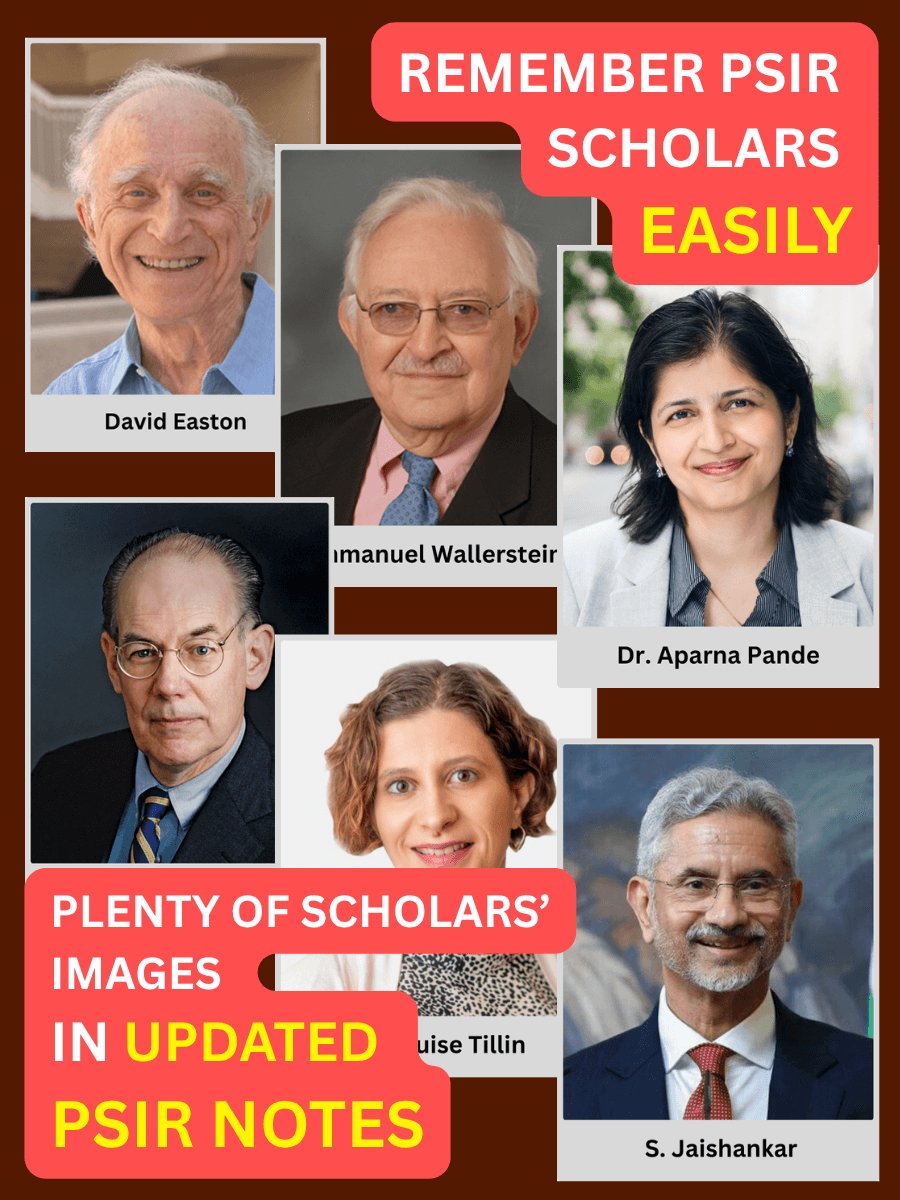Model Answers to PYQs (2019-2024)
1] Explain the various facets of the idealist approach to the study of international relations. Comment on its contemporary relevance. [2024/10m/150w/1d]
The idealist approach to international relations aka the liberal approach, believes in human capacity for reason and morality and a peaceful world order. We can trace the beginning of a liberal tradition in Christian roots that preached peace and humanity as fundamental values.
Immanuel Kant, believing in the good nature of humans, has suggested that perpetual peace among nations can be achieved. Liberal institutionalism further suggests that if we build institutions at the international level, it will check anarchy and create rule-based order, in the words of Woodrow Wilson, ‘the institutions can convert the jungle of international politics into zoo.’
Functionalism is another school of idealism that suggests ‘peace by pieces’. There are also other liberal theories like the interdependence school, democratic peace theory, complex interdependence etc. which believe in a peaceful state of international relations.
In contemporary times, marked by two ongoing wars, it is easier to turn to realism to explain the state of affairs. However, in such times idealism is not only relevant but also necessary. The liberal international order has ensured peace in the last 8 decades. This has proven that liberalism works even in the international sphere and thus should be pursued even more vigorously. [200 words]
2] What is ‘complex interdependence’? Discuss the role of transnational actors in the international system. [2021/15m/200w/2c]
The model of ‘Complex Interdependence’ was developed by Robert O Keohane and Joseph S. Nye in the late 1970s. The complex Interdependence model tried to synthesize the realist and liberal perspectives and highlighted the emergence of transnational actors vis-à-vis the state.
Following the rise of international regimes and institutions, the traditional military capabilities have been compensated with the importance of welfare and trade in foreign policy matters. The neoliberal perspective has attained much importance and the states are entering into cooperative alliances with one another under conditions of anarchy and dependence even.
Transnational actors play an important role in such an interdependent world. However, not all are positive forces. The multi-national corporations have their supply chains distributed all over the world and are acting as a source of employment for many. There are also many NGOs that are working for the welfare of people all over the world.
On the flip side, informal organizations like terrorists are working to wage war against people and states. These transnational actors operate beyond national boundaries, and it has become impossible for state actors to counteract them. With recent examples of the United States giving up on its Afghanistan project.
Due to entrenched interests, the role of transnational actors has become more important and has enforced global cooperation in many respects. The theory of complex interdependence is a very good explanation of current reality and also holds the power to give solutions to contemporary problems. [240 words]
3] What are the core assumptions of idealism as an approach to study International Relations? Explain its continuing relevance in peace building. [2020/10m/150w/1e]
Idealism is an optimistic doctrine that seeks to transcend international anarchy and create a more cosmopolitan and harmonious world order. Although idealism is often related to the documents like Woodrow Wilson’s fourteen points, its roots can be traced to Christian morality.
At its core, idealism assumes that human nature is essentially good and capable of good deeds in international relations. Human welfare and the advancement of civilization are concerns of all. Bad human behaviour is a product of bad institutions and by reforming the institution, bad behaviour can be eliminated. Wars, violence and tyranny can be and should be eliminated.
Idealism was attacked by realists like E. H. Carr (The Twenty Years’ Crisis). Idealists are considered to be out of touch with reality, putting moral principles before practical or prudential considerations.
However, as suggested by Hedley Bull, the distinctive characteristic of idealists is their belief in progress: the belief, in particular, that the system of international relations is capable of being transformed into a fundamentally more peaceful and just world order. Idealism can help us tackle the ever-new challenges of the changing world order, the prospect of a new cold war, the rise of xenophobia, ‘cyber-insecurity’ etc. and assist in shaping a better world. [204 words]
The post contains answers to the last 6-year papers i.e. (2024-2019). Answers to the previous year questions from 2013-2024 are a part of our book PSIR Optional Model Answers to PYQs (2013-2024). Click here to know more.




